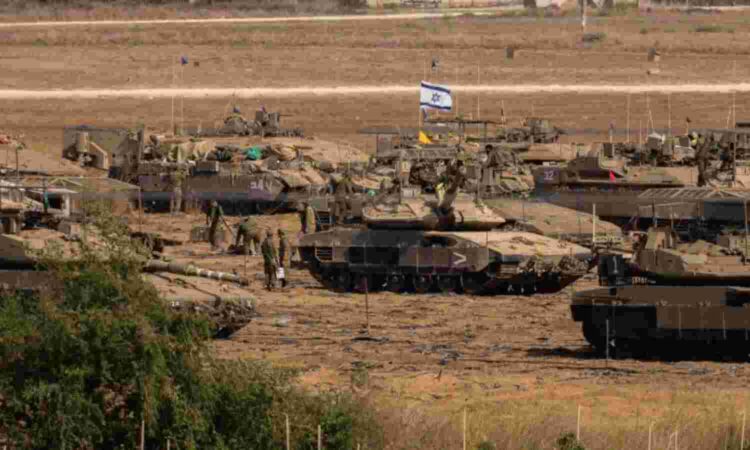Israeli Prime Minister Benjamin Netanyahu has emphasized that achieving “total victory” against Hamas necessitates addressing Rafah. Israel is set on launching a ground offensive in Rafah, located in the southern region of Gaza, a move causing international concern due to the potential risk to the large civilian population seeking refuge there.
With approval granted for military plans, Israel faces pressure from its allies, particularly the US, to ensure heightened protection for civilians amidst the densely populated area, where approximately 1.4 million Palestinians have sought shelter, having been displaced by conflicts in other parts of Gaza.
In efforts to address the critical nature of Rafah, Netanyahu is dispatching a delegation to Washington to present the proposed strategies to the US administration. Rafah holds strategic importance in Israel’s objective to diminish Hamas’ military capabilities, being identified as the group’s major stronghold in Gaza following operations that targeted its battalions elsewhere.
Israel asserts that Hamas maintains four battalions in Rafah, prompting the necessity for ground intervention. However, concerns over civilian safety have been raised, with the US urging Israel to devise a credible plan for evacuation. Egypt, Israel’s strategic partner, expressed apprehension, warning that actions potentially pushing Palestinians into Egypt could jeopardize decades-old peace agreements.
While Netanyahu acknowledged President Biden’s counsel against a direct Rafah operation, citing the need for respect, he underscored the vital role of entering Rafah to achieve victory. Despite the rhetoric, Israel appears hesitant to deploy troops immediately, possibly due to ongoing ceasefire negotiations. Logistical challenges also remain unresolved, with evacuation plans awaiting approval.
In preparation for the offensive, Israel’s military intends to direct civilians to designated “humanitarian islands” in central Gaza, although specifics regarding implementation are pending.

















Comments